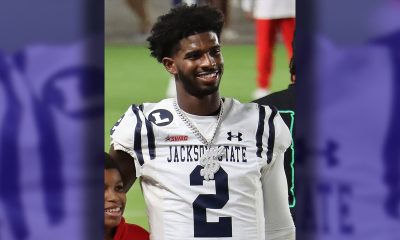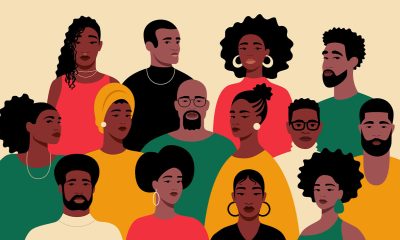National
Researchers Find Black Mortality Rates Higher in Racist Locales
by Zenitha Prince
Special to the NNPA from the Afro-American Newspaper
A groundbreaking study led by researchers from the University of Maryland College Park’s School of Health found Black mortality rates are much higher in areas with greater levels of racism.
The study gauged the levels of racism across 196 media markets based on the volume of Google searches containing the “n-word” in each area. Researchers qualified that not all the searches were necessarily motivated by racism, but assumed “that areas with a greater concentration of these searches have higher levels of racism overall.”
The difficulty of measuring racism through surveys led the researchers to apply the methodology of an Internet query-based measure—previously designed by study co-author Seth I. Stephens-Davidowitz—to find the relationship between racism and mortality risk.
“Racial disparities in health and disease represent a significant public health concern,” David H. Chae, assistant professor of epidemiology in the University of Maryland School of Public Health and lead author of the study, said in a statement. “Racism is a social toxin that increases susceptibility to disease and generates racial disparities in health.”
The examination found that areas with higher frequencies of racist Google queries had a higher prevalence of Black deaths. Those findings remained the same when additional demographic and socioeconomic characteristics of the areas, such as the number of Blacks, and levels of education and poverty, were taken into account.
The correlation also remained unchanged when results were adjusted for the White mortality rate and other socioeconomic factors.
“These findings add to mounting evidence that population-level racial disparities in health are driven by racism,” said Chae. “Racism represents a serious social and moral dilemma. The persistence of racial disparities in disease and mortality reflects the fact that issues of racism remain unresolved.”
The study, entitled “Association Between an Internet-Based Measure of Area Racism and Black Mortality” was published in the online journal PLOS ONE.
Activism
Oakland Post: Week of May 21 – 27, 2025
The printed Weekly Edition of the Oakland Post: Week of May 21 – 27, 2025

To enlarge your view of this issue, use the slider, magnifying glass icon or full page icon in the lower right corner of the browser window.
#NNPA BlackPress
Remembering George Floyd
#NNPA BlackPress
OP-ED: Oregon Bill Threatens the Future of Black Owned Newspapers and Community Journalism
BLACKPRESSUSA NEWSWIRE — Nearly half of Oregon’s media outlets are now owned by national conglomerates with no lasting investment in local communities. According to an OPB analysis, Oregon has lost more than 90 news jobs (and counting) in the past five years. These were reporters, editors and photographers covering school boards, investigating corruption and telling community stories, until their jobs were cut by out-of-state corporations.

By Dr. Benjamin F. Chavis, Jr.
President and CEO, National Newspaper Publishers Association
For decades, The Skanner newspaper in Portland, the Portland Observer, and the Portland Medium have served Portland, Oregon’s Black community and others with a vital purpose: to inform, uplift and empower. But legislation now moving through the Oregon Legislature threatens these community news institutions—and others like them.
As President and CEO of the National Newspaper Publishers Association (NNPA), which represents more than 255 Black-owned media outlets across the United States—including historic publications like The Skanner, Portland Observer, and the Portland Medium—l believe that some Oregon lawmakers would do more harm than good for local journalism and community-owned publications they are hoping to protect.
Oregon Senate Bill 686 would require large digital platforms such as Google and Meta to pay for linking to news content. The goal is to bring desperately needed support to local newsrooms. However, the approach, while well-intentioned, puts smaller, community-based publications at a future severe financial risk.
We need to ask – will these payments paid by tech companies benefit the journalists and outlets that need them most? Nearly half of Oregon’s media outlets are now owned by national conglomerates with no lasting investment in local communities. According to an OPB analysis, Oregon has lost more than 90 news jobs (and counting) in the past five years. These were reporters, editors, and photographers covering school boards, investigating corruption, and telling community stories, until their jobs were cut by out-of-state corporations.
Legislation that sends money to these national conglomerate owners—without the right safeguards to protect independent and community-based outlets—rewards the forces that caused this inequitable crisis in the first place. A just and inclusive policy must guarantee that support flows to the front lines of local journalism and not to the boardrooms of large national media corporations.
The Black Press exists to fill in the gaps left by larger newsrooms. Our reporters are trusted messengers. Our outlets serve as forums for civic engagement, accountability and cultural pride. We also increasingly rely on our digital platforms to reach our audiences, especially younger generations—where they are.
We are fervently asking Oregon lawmakers to take a step back and engage in meaningful dialogue with those most affected: community publishers, small and independent outlets and the readers we serve. The Skanner, The Portland Observer, and The Portland Medium do not have national corporate parents or large investors. And they, like many smaller, community-trusted outlets, rely on traffic from search engines and social media to boost advertising revenue, drive subscriptions, and raise awareness.
Let’s work together to build a better future for Black-owned newspapers and community journalism that is fair, local,l and representative of all Oregonians.
Dr. Benjamin F. Chavis Jr., President & CEO, National Newspaper Publishers Association
-

 Activism4 weeks ago
Activism4 weeks agoAI Is Reshaping Black Healthcare: Promise, Peril, and the Push for Improved Results in California
-

 Activism4 weeks ago
Activism4 weeks agoBarbara Lee Accepts Victory With “Responsibility, Humility and Love”
-

 Activism4 weeks ago
Activism4 weeks agoESSAY: Technology and Medicine, a Primary Care Point of View
-

 Activism4 weeks ago
Activism4 weeks agoFaces Around the Bay: Author Karen Lewis Took the ‘Detour to Straight Street’
-

 Arts and Culture4 weeks ago
Arts and Culture4 weeks agoBOOK REVIEW: Love, Rita: An American Story of Sisterhood, Joy, Loss, and Legacy
-

 Activism4 weeks ago
Activism4 weeks agoNewsom Fights Back as AmeriCorps Shutdown Threatens Vital Services in Black Communities
-

 #NNPA BlackPress4 weeks ago
#NNPA BlackPress4 weeks agoThe RESISTANCE – FREEDOM NOW
-

 Activism4 weeks ago
Activism4 weeks agoTeachers’ Union Thanks Supt. Johnson-Trammell for Service to Schools and Community



















































